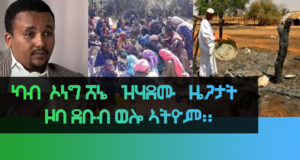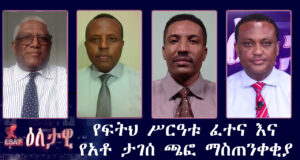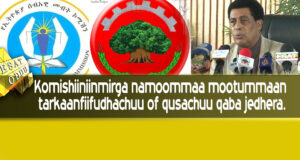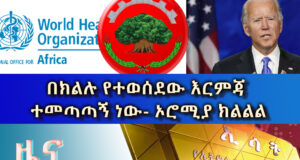
(Photo: File)
ESAT News (February 26, 2016)
The Ethiopian government has been building up its army and weaponry near the country’s border with Eritrea in the last two days, according to information ESAT received from reliable sources. The fortification of the border with troops and armaments has been mainly on the Humera and Badme frontlines, close to the border with Eritrea.
Political analysts saw the move by the Ethiopian government as an attempt to externalize the political turmoil inside the country which has been exacerbated by the relentless and ongoing protest in the country’s largest Oromia region.
The Ethiopian government has been accusing Eritrea and armed Ethiopian opposition groups based in that country of orchestrating the ongoing protest by the Oromo people, the country’s largest ethnic groups, for political and economic rights. Oromo political and civic organizations however stress the protests were self-organized and the protests, mainly by students in the Oromia region, were peaceful; and that they were a reaction to years of economic and political marginalization against the Oromos by the minority government. The protesters were met with deadly response by the regime’s Agazi forces, killing at least 200, while hundreds of others sustained gunshot wounds and thousands were put behind bars.
Ethiopian armed opposition groups have recently made several surprise attacks against the regime’s army along the border and deep inside Ethiopian territory. There have been reports of attacks by the Patriotic Ginbot 7 forces against the Ethiopian army; and there were incidents where hundreds of people, especially traditional gold miners in Tigray, have been captured by forces of the Tigray Peoples’ Democratic Movement and taken to Eritrea. TPDM is one of the armed groups based in Eritrea and has formed an alliance with Patriotic Ginbot 7, a popular armed group which is also based in that country.
“The regime is moving its armaments to the border and one possible reason could be to show off its might, as it does not want to be seen as weak by the people, especially by the people of Tigray, the region where opposition armed groups have recently launched several surprise attacks against the Ethiopian army,” said Sisay Agena, a news analyst and producer with EAST.
“But we cannot rule out the possibility that officials of the regime, considering their past behavior, could just decide to venture into another war, which would hasten their demise,” Sisay said.
The Ethiopian regime has over the years made several attempts to recruit people to join its army, but was to no avail. Having seen that no one showed up to register and join the army, the regime resorted to forceful conscription, especially in the rural areas, reportedly telling the unsuspecting youth that they would be sent abroad for a contractual job.
Thousands of Ethiopian youth, frustrated by the political and economic alienation by the minority regime, have been crossing the country’s north border to join the armed opposition groups, recent reports revealed.
The 1998-2000 Ethio-Eritrean war, sparked by a dispute over the territory called Badme, claimed the lives of at least 100,000 people on both sides, according to estimates by the International Crisis Group, ICG.
The UN Boundary Commission in its ruling awarded Badme, the flashpoint for the two year war, to Eritrea. Refusing to heed to the binding rule, Ethiopia has not handed over Badme to Eritrea yet.
 The Ethiopian Satellite Television and Radio (ESAT) No. 1 Ethiopian news media: Esat, Ethiopian news, daily Ethiopian news, ESAT tv, ESAT Radio, Ethiopia
The Ethiopian Satellite Television and Radio (ESAT) No. 1 Ethiopian news media: Esat, Ethiopian news, daily Ethiopian news, ESAT tv, ESAT Radio, Ethiopia





